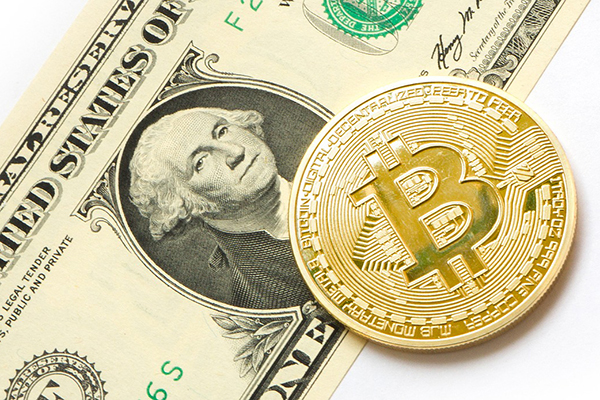In recent years, after the creation of Bitcoin and the launch of its first version in 2009, there have been many interesting projects that have appeared. Contributing new ideas and decentralized solutions to many of the processes or centralized applications that we all use today. Do smart contracts sound familiar to you? Smart Contracts: What Are They, How Do They Work And What Do They Contribute? (Part I)
This time we will talk about them in depth. Mechanisms that aim to eliminate intermediaries to simplify processes in order to save costs to the consumer.

I do not want you to be left with doubts without fully understanding the concept of what smart contracts are and what their potential is.
This articles will be divided into five parts. First we will talk about the origin of smart contracts, then we will analyze the current situation and then we will present some of the most important alternative projects to Bitcoin that are fully focused on smart contracts.
What is a Smart Contract?
To understand a smart contract we must first remember that it means a contract.
A contract is nothing more than an agreement between two or more parties. An environment that defines what can be done, how it can be done, what happens if something is not done… In other words, rules of the game that allow all the parties that accept it to understand what the interaction they are going to perform will consist of.
Until now, contracts have been verbal documents or expensive written documents, subject to territorial laws and jurisdictions, and sometimes requiring notaries, that is to say, more costs and time. Something not accessible to everyone.
And this is not the worst: the contents of contracts may be subject to interpretation. Hang on!
While a smart contract is capable of being executed and enforced by itself, autonomously and automatically, without intermediaries or mediators.
They avoid the burden of interpretation as it is not verbal or written in the languages we speak. Smart contracts are “scripts” (computer codes) written with programming languages, the terms of the contract being pure sentences and commands in the code that forms it.
On the other hand, a smart contract can be created and called by physical and/or legal persons, but also by machines or other programs that work autonomously.
A smart contract has validity, without depending on authorities, due to its nature: it is a code visible by all and that cannot be changed when existing on the blockchain technology, which gives it that decentralized, immutable and transparent character.
Do you Realize the Potential of this?
It is important to point out that, as it is distributed among thousands of computers, it prevents a large company from guarding them, which eliminates bureaucracy, censorship and the great costs/implicit times of this process which, by the way, until now has been the daily routine.

If we combine the principles of a smart contract with the creativity of many developers on the planet, the result is possibilities never seen before, accessible to all and at costs that border on gratuity.
Ecosystems without authoritarian figures who submit their members to their will. We are talking about a fairer world.
Imagine a Tesla self-driven car, bought in a group, capable of self-managing and renting on its own but without a Uber-type company taking 10% behind. Welcome to the world of smart contracts.
The First Smart Contracts
The first public record of Smart Contracts is through Nick Szabo, jurist and cryptographer who publicly mentioned the term in a document in 1995.

Two years later, in 1997, he developed a much more detailed document explaining the Smart Contracts.
Unfortunately, despite defining the theory, it was impossible to make it a reality with the existing technological infrastructure. For intelligent contracts to be executed, there must be programmable transactions and a financial system that recognizes them, digitally native.
Precisely what Nick defined as non-existent in 1995, in 2009 (almost 15 years later) would become a reality with the emergence of Bitcoin and its blockchain technology.
Bitcoin has some smart contracts already created that are executed by default and in a transparent way to the user.
When we talk about distribution contracts we refer to one of the cases of using Bitcoin to form agreements between people through the blockchain.
And it is that Bitcoin, among all its advantages, allows to add logic to the money, something unique of this type of money: it is programmable money.
This logic applied to money allows us to solve common problems that we can find today, but increasing the level of confidence throughout the automated process in which the interaction takes place.
For example, new products or applications could be developed, such as for example:

- Distributed markets that would allow to implement P2P contracts and trading in the markets with Bitcoin postulating itself as a complete competitor to the current financial system.
- Properties such as automobiles, telephones, houses or non-physical elements controlled through the blockchain make up the so-called smart property. Through the use of contracts and intelligent properties, the level of trust is allowed to be much higher, reducing fraud, mediation fees for third parties and allowing operations to be taken to a new level.
- Automation of inheritances by establishing the allocation of assets upon death. As soon as the death arrives, the contract would come into force and would be executed by distributing the funds to the address set out in the contract.
- Insurance: Accident parts, company payments for repairs, reduction of fraud in accidents,…
Smart contracts use Bitcoin’s technology to exist, something that comes great to Bitcoin, because it is receiving much more attention by bringing hundreds of thousands of new users to its ecosystem.
In fact it’s not hard to find statements like: “Smart contracts are Bitcoin’s killer APP”.
This logic that can be applied to Bitcoin transactions is carried out through the use of a language of its own, allowing the blockchain itself to determine what to do based on the programmed indications.
This means that we have a transaction with instructions in a distributed and immutable way, giving a complete security and without interpretations.
This post continues at Smart Contracts: What Are They, How Do They Work And What Do They Contribute? (Part II)
For further information you can visit:
Maybe you are also looking for:



